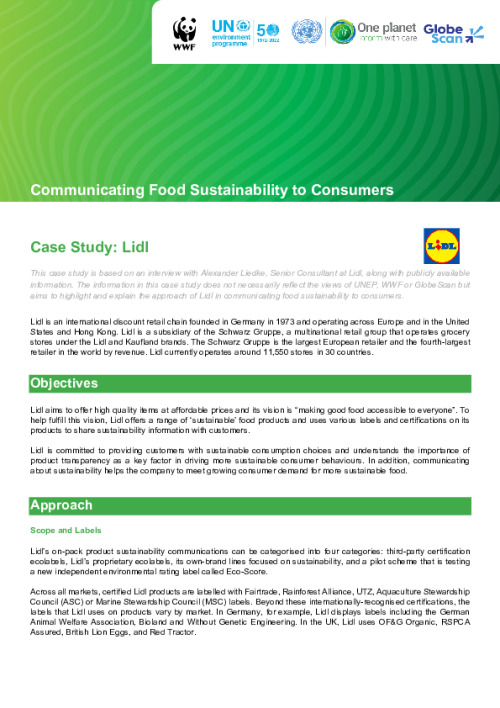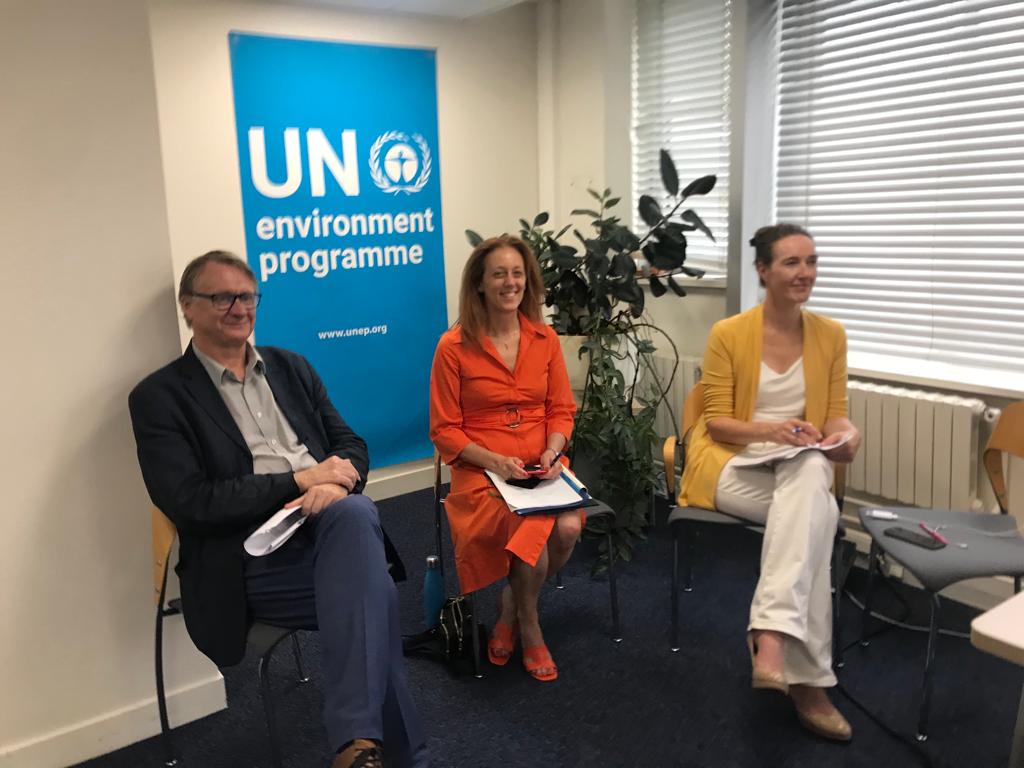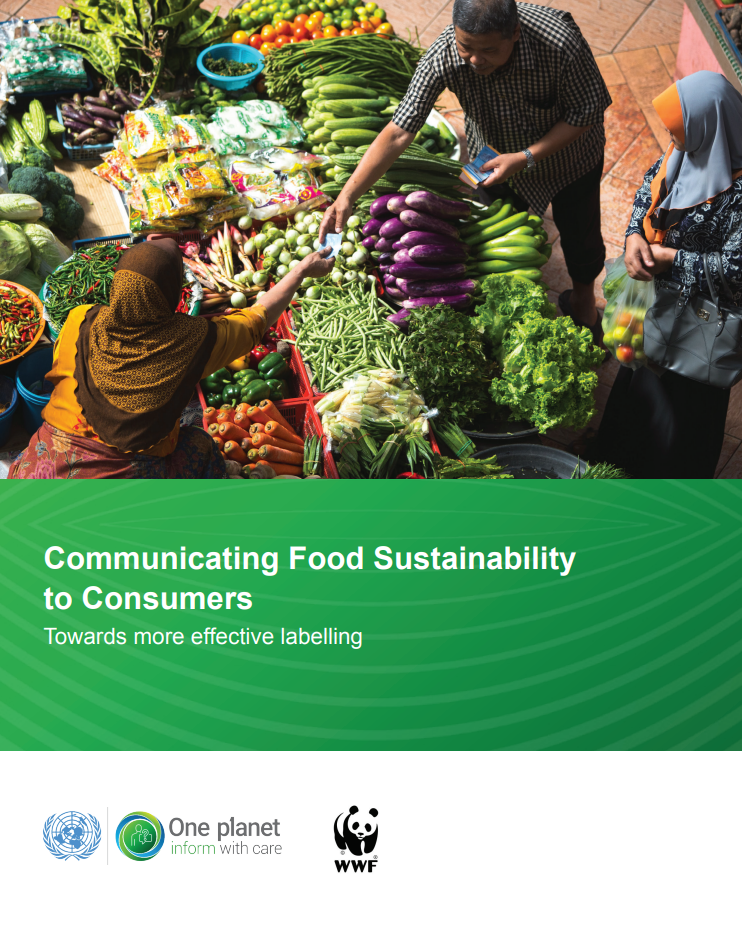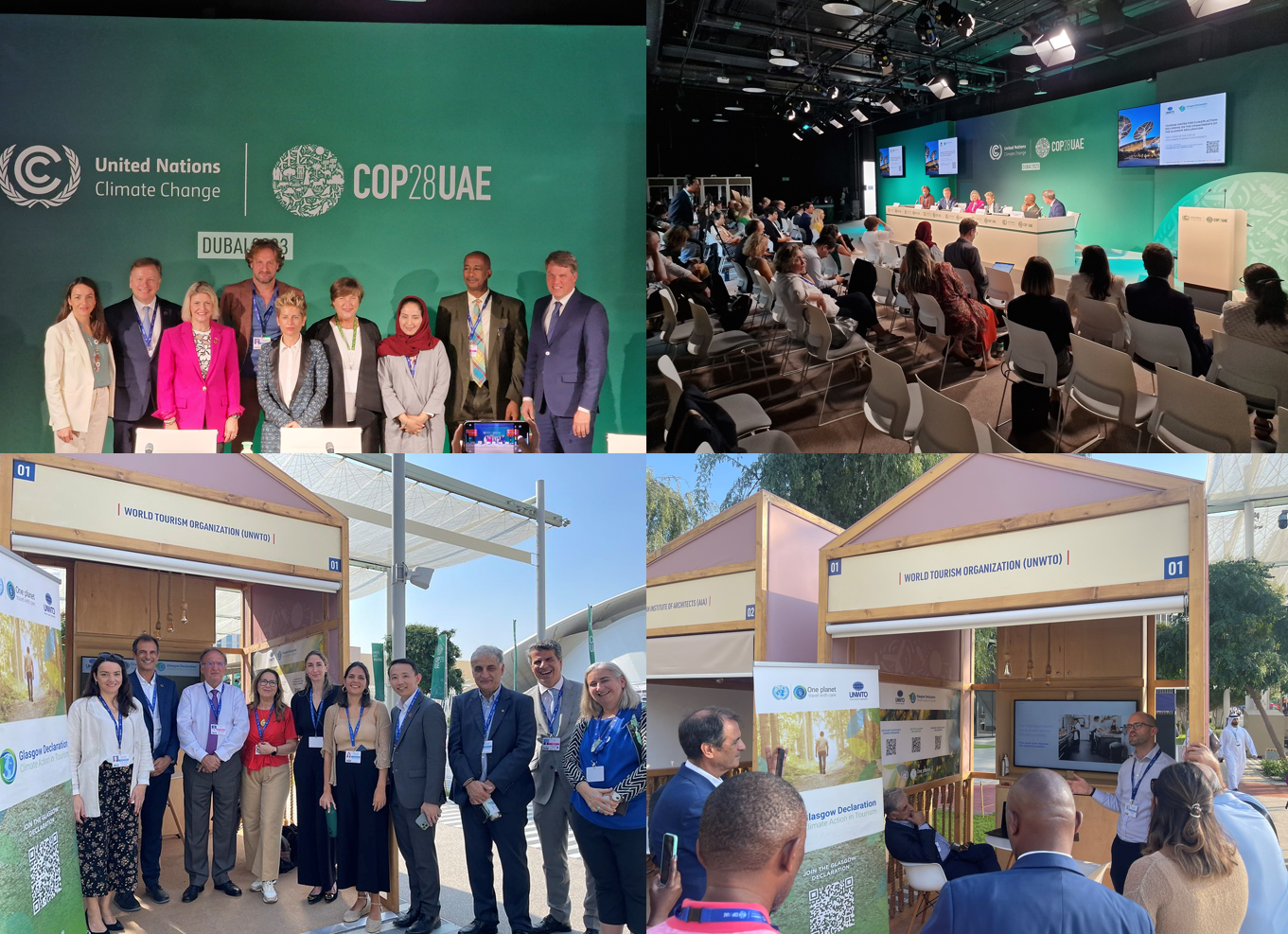The Fairtrade Foundation: A Case Study on Communicating Food Sustainability Information to Consumers

UNEP, WWF and GlobeScan have developed a series of twelve case studies presenting efforts by companies and labels to communicate food sustainability to consumers. Read on to find out more about Fairtrade Foundation, the first case study in the series.
About Fairtrade Foundation
The Fairtrade Mark is a product certification that indicates that social, economic and environmental aspects of production have been certified against the Fairtrade Standards for Producers and Traders. In the UK, the Mark is managed by the Fairtrade Foundation, which is the UK member of Fairtrade International who owns the Fairtrade Mark and manages the standards behind the Mark. Fairtrade International is a multi-stakeholder association of 22 member organisations including 19 national labelling initiatives across Europe, Japan, North America, Mexico and Australia/New Zealand and three networks of producer organisations from Asia, Africa, Latin America and the Caribbean. The Fairtrade global system is 50% owned by producers representing farmer and worker organisations, meaning producers have a say in decision-making within Fairtrade’s General Assembly and on Fairtrade International’s Board of Directors. Adherence to the Fairtrade Standards is certified by an independent body, FLOCERT, ensuring consumers and businesses can have full trust in the Mark.
The fair trade movement in the UK started as a citizen-led campaign to create change in how food was produced. Since its launch, the Fairtrade Foundation has worked alongside this grassroots movement to raise awareness and educate consumers and citizens about where their food and agricultural products come from, how they are grown and the living and working conditions of the people who produce them.
Fairtrade Foundation’s objectives
The mission of Fairtrade is to connect farmers and workers in low-income countries worldwide with the consumers of the products they make or grow, promote fairer trading conditions and empower producers to combat poverty, strengthen their position and take more control over their lives.
Through the Fairtrade Mark and its wider campaigns, the Fairtrade Foundation aims to connect shoppers with the farmers and workers who produce their food and allow them to take the simple action of buying Fairtrade products to make a positive social and environmental impact.
To learn more about Fairtrade Foundation’s approach to communicate food sustainability information to consumers and learn about the challenges and successes, download the full case study here.
Project background
Under the umbrella of the One Planet network Consumer Information Programme, UNEP, WWF and GlobeScan developed a research project to improve our understanding of how the provision of sustainability information can influence consumers’ food choices. This case study is one of twelve case studies showcasing approaches by companies and labels to communicate food sustainability information to consumers. Stay tuned for more articles in the series published every Tuesday and Friday over the coming weeks.





